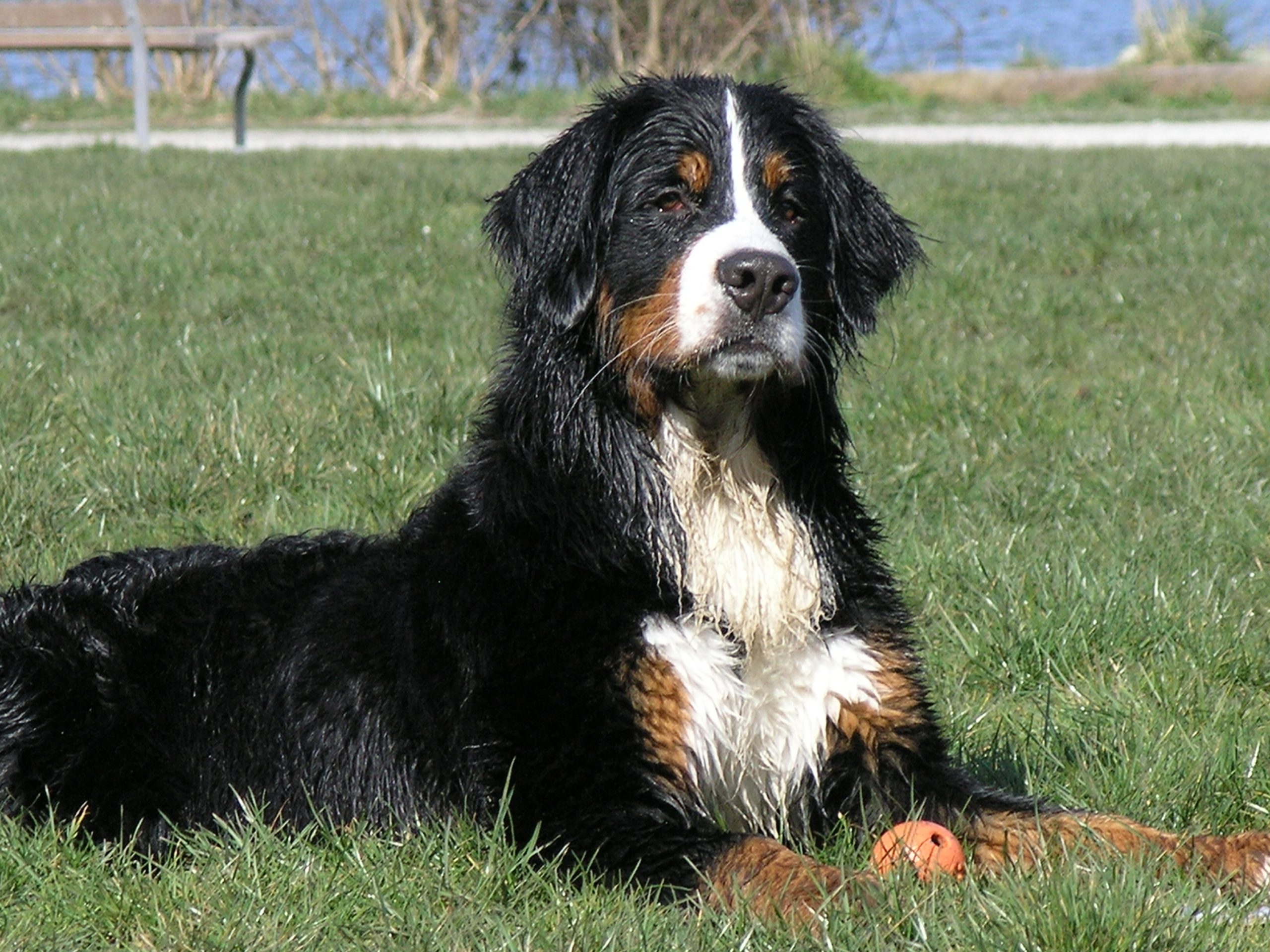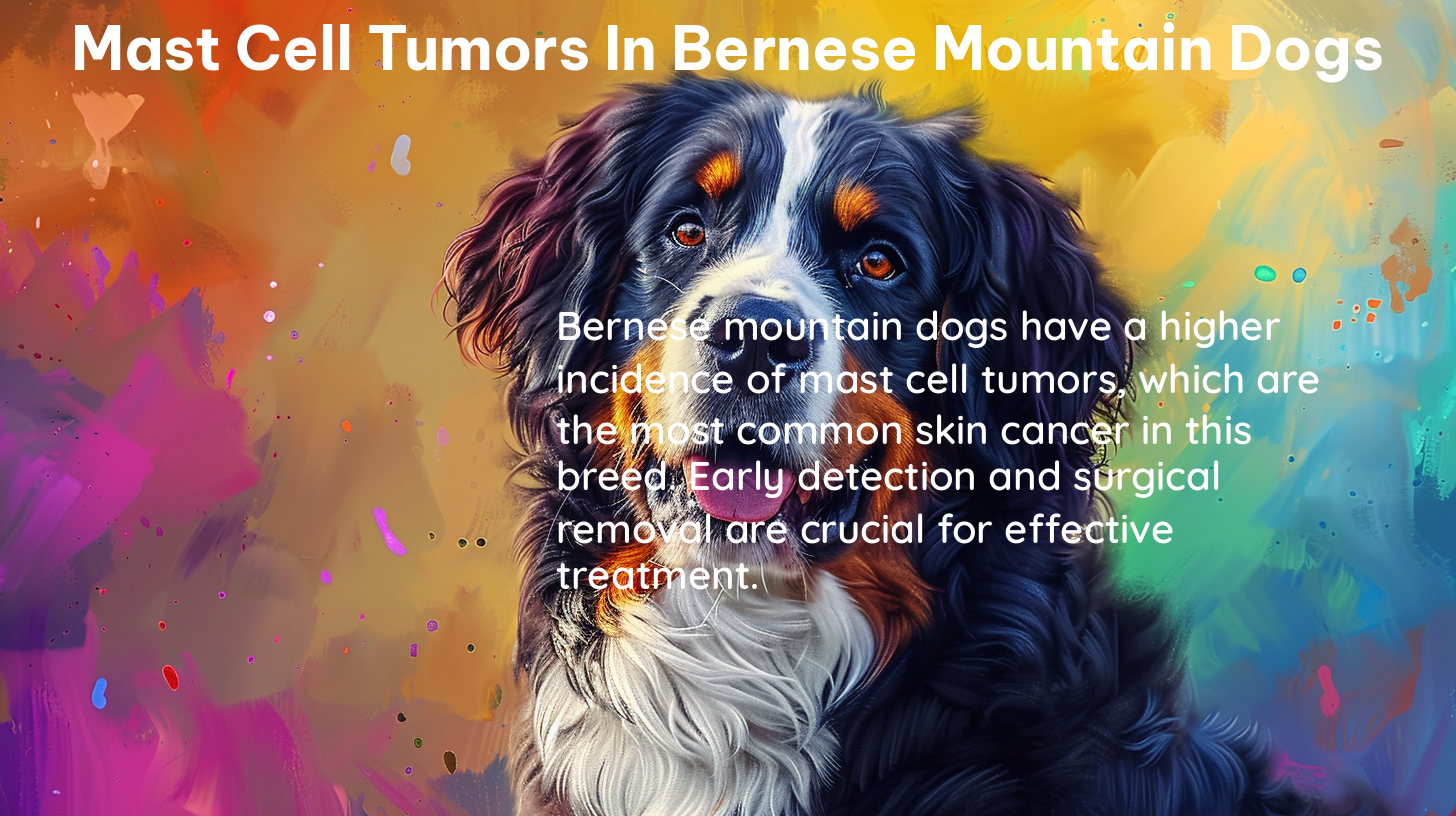Mast cell tumors are a common occurrence in Bernese Mountain Dogs, a breed known to be predisposed to various types of skin tumors. These tumors can be a significant health concern for Bernese owners, as they can be both challenging to diagnose and potentially life-threatening if not properly managed.
Prevalence and Malignancy

Mastocytomas account for about one-fifth of all skin tumors in dogs, with Bernese Mountain Dogs being one of the breeds more frequently affected. Notably, half of these tumors are malignant in Bernese Mountain Dogs, making early detection and proper treatment crucial.
Presentation and Characteristics

Mast cell tumors in Bernese Mountain Dogs typically appear as raised nodular masses that feel soft to solid, with 10-15% being indistinguishable from fatty tumors. These tumors can occur anywhere on the body surface, with the limbs, lower abdomen, and chest being the most common sites. They can also develop in internal organs, such as the small intestine, the mucosa of the mouth, the nasal mucosa, or the conjunctiva, although this is less common.
Diagnosis and Treatment
Detecting mast cell tumors in Bernese Mountain Dogs requires a fine needle biopsy followed by staining and microscopic examination (cytopathology). This is the only way to confirm the presence of a mast cell tumor and determine its grade, which is crucial for determining the appropriate treatment approach.
The treatment of choice for mast cell tumors in Bernese Mountain Dogs is complete surgical removal, possibly combined with radiotherapy or chemotherapy. Tumors for which surgical removal is not possible or only incompletely possible can also be treated with tyrosine kinase inhibitors, a class of targeted cancer medications.
Breed Predisposition
Bernese Mountain Dogs are one of the breeds more frequently affected by mastocytomas, suggesting a genetic background for the tumors. This breed predisposition highlights the importance of regular veterinary check-ups and vigilance in monitoring for any suspicious skin growths.
Additional Facts
- Mast cell tumors are the most common malignant tumor seen in dogs.
- They can occur in dogs of any age but are most common in dogs 8 to 10 years old.
- There is no sex predilection for mast cell tumors.
Conclusion
Mast cell tumors in Bernese Mountain Dogs are a significant health concern that requires vigilant monitoring and prompt treatment. By understanding the prevalence, characteristics, and breed predisposition of these tumors, Bernese owners can work closely with their veterinarians to ensure the best possible outcomes for their beloved companions.

Sarah Johnson
Sarah Johnson is a devoted Bernese Mountain Dog enthusiast and regular contributor to Bernese Mountain Dog Pro. With over a decade of experience in raising and training Berners, Sarah brings practical knowledge and passion to her writing. Sarah lives in Colorado with her two Berners, Max and Bella.